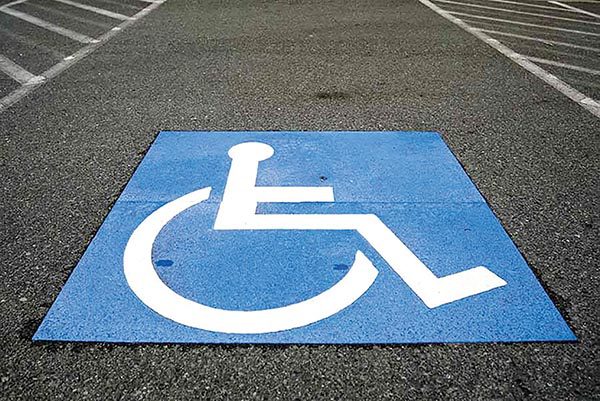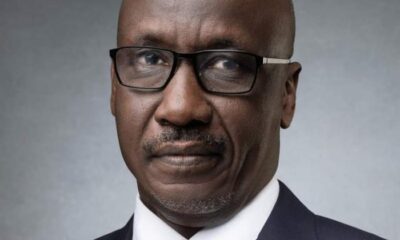National Issues
From Marginalization to Empowerment: The Rights of People with Disabilities in Nigeria -By Fadeela Mustapha Lawan
In order to improve opportunities for people with disabilities in Nigeria, the government could take a number of steps. First, it could increase funding for special education and ensure that schools are equipped with the necessary accommodations for students with disabilities. This could include things like ramps, braille materials, and sign language interpreters.

In Nigeria, people with disabilities face a daily struggle to access their basic rights and services due to their physical challenge that excluded them from progress, despite the laws designed to protect their rights, they are often marginalized and excluded from society.
Nigeria has one of the highest rates of disability in the World which is find in several states that involved; Sokoto, Bayelsa, Borno, among others with the higher rates of disabled people. This represent different types of disabilities, but the most common included; physical disabilities, hearing impairment, visual impairment, mental health condition and so on, that are likely to be even higher when considering the underreporting of disabilities in the country. According to estimates from the World Bank, about 15% of the population in Nigeria has some form of disability. This is a relatively high percentage, especially compared to other countries. And also according to the World Health Organization, Nigeria has one of the highest rates of disability in the world, with around 19.5 million people living with a disability. This represents about 10% of the country’s population.
People with disabilities face many barriers to education, job opportunities, and participation in government in Nigeria. One of the main struggles faced by people with disabilities in Nigeria when it comes to education is the lack of a supportive environment. First, many schools do not have the proper facilities to accommodate students with disabilities, such as accessible bathrooms and classrooms that are designed for wheelchairs. Second, there may be a lack of understanding among teachers and other students, which can lead to discrimination and bullying. Third, there is often a lack of accessible infrastructure, such as ramps and elevators, which can make it difficult for people with physical disabilities to access school buildings. Fourth, many schools do not have adequate resources to support students with special needs, such as braille materials or sign language interpreters. Fifth, teachers may not be adequately trained to work with students with disabilities, and there may be a lack of support services, such as counseling and career guidance.
It is true that many people with disabilities in Nigeria struggle to find employment and other sources of income, which can lead to poverty and homelessness. For some people with disabilities, begging may be the only option they have to earn money to support themselves and their families. However, It is also worth noting that people with disabilities are often not able to access the same social safety nets and government assistance programs as others, which can further contribute to poverty and homelessness. And the current situation in Nigeria has a significant impact on the lives of disabled people who are dependent on begging. The recent economic recession in Nigeria has led to a rise in unemployment and poverty, which has made it even more difficult for people with disabilities to find work and support themselves. This has led to an increase in the number of people who are forced to beg on the streets to survive.
In Nigeria, the Persons With Disabilities (PWD) Act of 1990 guarantees the rights of disabled people to participate in politics and governance. In practice, however, there are still many barriers to their participation. For example, there are no reserved seats for people with disabilities in the National Assembly or in state legislatures. There are also no legal requirements for political parties to include disabled people on their electoral lists.
In Nigeria, there are a number of scholarship opportunities available for people with disabilities. These scholarships include the JONAPWD scholarship program, which covers the costs of secondary, undergraduate, and postgraduate education for people with disabilities. The Federal Scholarship Board also offers scholarships for all Nigerian citizens, regardless of disability status. In addition, a number of international organizations, such as the Ford Foundation and the Aga Khan Foundation, provide scholarships specifically for people with disabilities. These scholarships can cover a wide range of costs, including tuition, books, and living expenses. Yet, people with disabilities face a number of challenges in obtaining these scholarships. One of the biggest challenges is a lack of awareness of the scholarships that are available. Many people with disabilities are not aware of the options available to them, and they may not know how to apply for scholarships. Another challenge is a lack of access to the required documentation and information. People with disabilities may not have access to their academic transcripts or other documents that are required for scholarship applications. Finally, people with disabilities may face discrimination or prejudice when applying for scholarships, as some organizations may have preconceived notions about their abilities.
People with disabilities in Nigeria face a lot of discrimination and stigma. In many cases, they are not seen as full members of society and are often excluded from educational, economic, and social opportunities. They may also be subject to verbal and physical abuse, as well as sexual violence. Many people with disabilities also struggle to access healthcare and other basic services, and they may not have the same legal protections as others.
There are a number of disabilities that can be caused by natural disasters such as; floods, and other natural disasters can cause physical disabilities such as amputations, spinal cord injuries, and hearing loss. In addition, the emotional and psychological trauma that often accompanies natural disasters can also lead to disabilities such as post-traumatic stress disorder (PTSD) and depression. In some cases, people with disabilities that are caused by natural disasters may have difficulty accessing the resources and support they need to cope with their disabilities. This can lead to further challenges and hardship for them.
In order to improve opportunities for people with disabilities in Nigeria, the government could take a number of steps. First, it could increase funding for special education and ensure that schools are equipped with the necessary accommodations for students with disabilities. This could include things like ramps, braille materials, and sign language interpreters. Second, the government could create more job opportunities for people with disabilities, for example by establishing government programs or offering incentives to businesses that hire people with disabilities.
Fadeela Mustapha Lawan, from Mass Communication department, Borno State University.



















